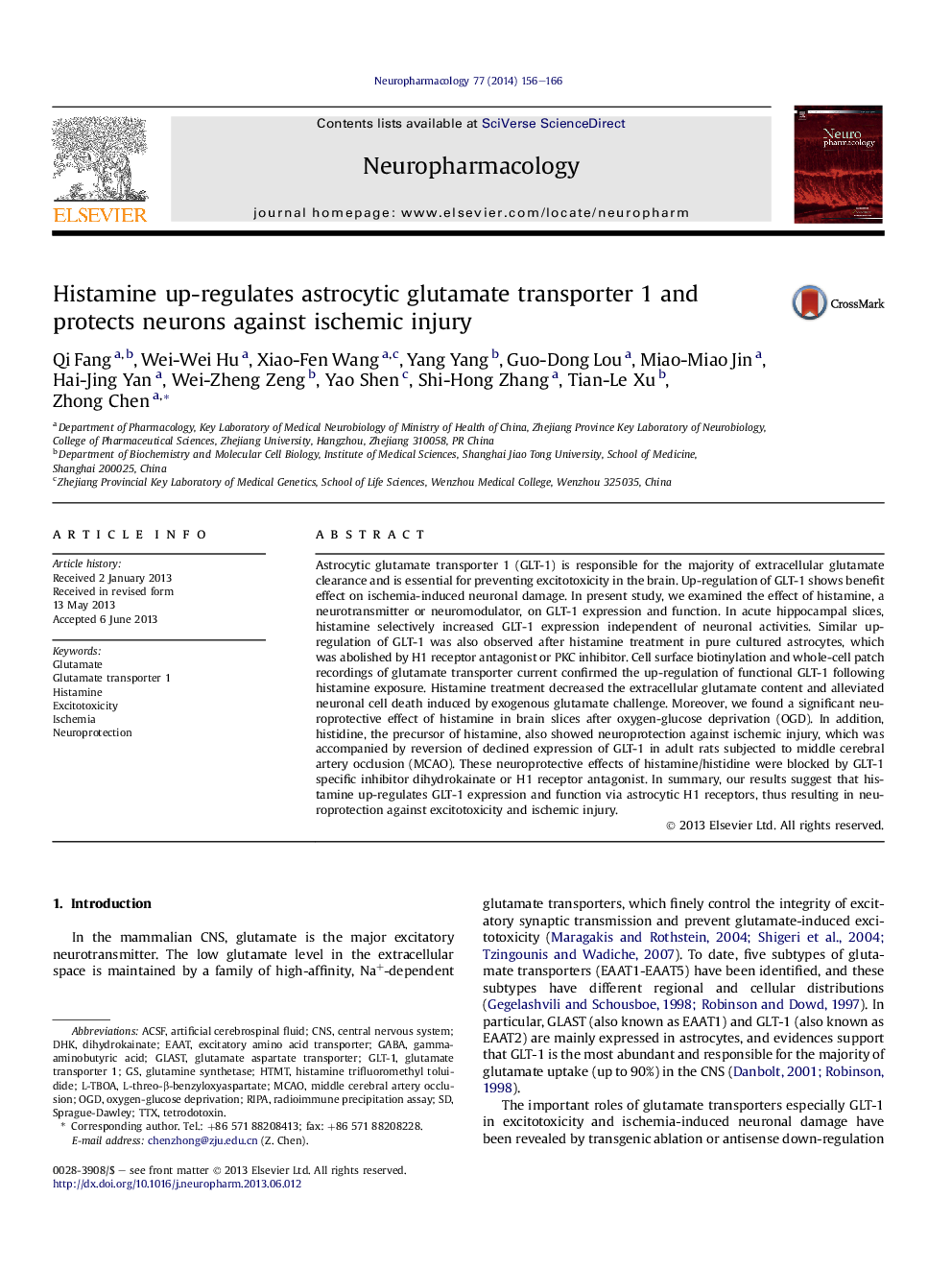| Article ID | Journal | Published Year | Pages | File Type |
|---|---|---|---|---|
| 5814856 | Neuropharmacology | 2014 | 11 Pages |
â¢Histamine up-regulates glutamate transporter 1 (GLT-1) expression via H1 receptor.â¢Histamine enhances glutamate transporter current and decreases extracellular glutamate.â¢Pretreatment with histamine protects against excitotoxicity and ischemic injury.â¢GLT-1 inhibitor DHK abolishes the neuroprotection of histamine.â¢We suggest histamine may be a new endogenous regulator of GLT-1.
Astrocytic glutamate transporter 1 (GLT-1) is responsible for the majority of extracellular glutamate clearance and is essential for preventing excitotoxicity in the brain. Up-regulation of GLT-1 shows benefit effect on ischemia-induced neuronal damage. In present study, we examined the effect of histamine, a neurotransmitter or neuromodulator, on GLT-1 expression and function. In acute hippocampal slices, histamine selectively increased GLT-1 expression independent of neuronal activities. Similar up-regulation of GLT-1 was also observed after histamine treatment in pure cultured astrocytes, which was abolished by H1 receptor antagonist or PKC inhibitor. Cell surface biotinylation and whole-cell patch recordings of glutamate transporter current confirmed the up-regulation of functional GLT-1 following histamine exposure. Histamine treatment decreased the extracellular glutamate content and alleviated neuronal cell death induced by exogenous glutamate challenge. Moreover, we found a significant neuroprotective effect of histamine in brain slices after oxygen-glucose deprivation (OGD). In addition, histidine, the precursor of histamine, also showed neuroprotection against ischemic injury, which was accompanied by reversion of declined expression of GLT-1 in adult rats subjected to middle cerebral artery occlusion (MCAO). These neuroprotective effects of histamine/histidine were blocked by GLT-1 specific inhibitor dihydrokainate or H1 receptor antagonist. In summary, our results suggest that histamine up-regulates GLT-1 expression and function via astrocytic H1 receptors, thus resulting in neuroprotection against excitotoxicity and ischemic injury.
